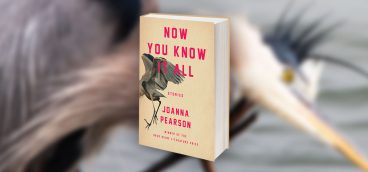The Challenge of Fighting Back

Reading the latest novel by Stewart O’Nan, the Pittsburgh-born writer who boomeranged home several years ago, is like watching the performance of an experienced athlete who makes it all look so easy. “City of Secrets” is his 16th novel since 1994, and the first to take place entirely outside of the USA. Like 2015’s “West of Sunset,” which elucidated the final desperate years of F. Scott Fitzgerald, this novel also departs from his familiar territory of contemporary Americans. But keeping with the emotional landscape that he navigates so well, it’s about human beings at their wits’ end.
“City of Secrets” opens in 1945 Jerusalem under the British Mandate and builds toward a landmark act of violence on the path to the establishment of Israel. Calling it “historical fiction,” however, would be too limiting. This is a wrenching story of lovers caught between the vise grips of history, numbed by the enormity of their losses yet still in possession of a moral compass.
In an introductory note with advance review copies, O’Nan saves book critics some time by acknowledging his debt to Graham Greene, Raymond Chandler and Joseph Conrad in the creation of this work. As sommeliers purr when you’ve picked the right vintage, readers will say “excellent choice” for his influences here. A short and potent novel, “City of Secrets” operates in a dramatic, highstakes period—the immediate aftermath of the Holocaust, the guerrilla resistance to British administration of Palestine, the urgency of the Zionist cause. The internal strife of the characters is well-deserved. Like Greene et al., O’Nan tells the story with restraint, dotting the narrative with piquant observations.
“He’d been condemned to death before. It wasn’t the worst thing in the world,” O’Nan writes of the central character, Brand. A Latvian Jew who lost his entire family in the war, he survived the German and Russian camps because of his skills as a mechanic. Arriving in Jerusalem a penniless refugee, he joins the underground, acquiring a new name (Jossi) and occupation as a taxi driver. The cell gives him a stolen black Peugeot with forged papers and a secret trunk compartment; his duties are just “to listen” and wait to be tapped for action. Brand is a shell of a man, haunted by the memory of his wife, Katya, and the horrors he witnessed in the camps. While drained of the spirituality of his religion, he cannot help but be sustained by the realization of what he longed for in Riga: “ ‘Next year in Jerusalem.’ For Brand it was next year, without the sweetness.”
Within the cell, he pairs up with Eva, known as The Widow, a fellow Balt from the more elegant Vilnius. A decade older than Brand, she is a regal former actress, but “at the corner of her mouth a deep scar had healed badly, the nerve severed so that one side drooped… like the mask of tragedy.” Eva serves the cause of resisting British rule by making herself intimately available to powerful men with weaknesses to exploit. Brand has no standing to object to her line of work; he still feels as if he is betraying his late wife.
Their cell leader is Asher, an international man of mystery, who keeps everyone on a need-to-know basis. Brand joined the resistance believing he was part of Haganah, the established Jewish defense group that had at one point worked with the British to quash the more radical elements, Irgun and Stern Gang. But after his first operation, transporting a severely wounded Sabra fighter to a clandestine hospital, Brand gets the feeling he’s become part of serious business, “not some bourgeois Ashkenazi pipe dream.” Asher sees the value in Brand’s nothing-left-tolose attitude, matched with driving and mechanical skills, and brings him into evermore dicey actions. Brand learns that they are all part of Irgun. “We don’t believe in fighting our brothers and sisters,” Eva confesses.
For Brand, the work and the cause are a chance to redeem his honor—and pile on internal contradictions. “The camps had made him selfish and doubtful. To have someone think well of him now was uncomfortable, because he knew the truth,” O’Nan writes, as Brand recalls his cowardice when a friend was killed before his eyes by a Nazi. “After being an animal for so long, he didn’t think he’d ever be a man again, but if they believed in him, maybe it was possible.” During an audacious train heist of a British payroll, Brand acts with verve to aid an injured comrade, and surprises himself by grabbing a machine gun and barking orders at cowering engineers. Later, he cringes at the realization “that at his most heroic he sounded exactly like” the Nazi guard who had tormented him in the camps.
While “City of Secrets” presents acts of savagery and lurid personal betrayals, O’Nan displays the master’s touch of keeping it real and keeping it clean—not a whiff of profanity to be heard, an act of sexual congress to be described nor a bloodletting to be drawn out. It’s a high-protein tale of victims wrestling with their consciences over how to respond to atrocities—fighting fire with fire, or dodging and weaving. Brand’s dilemmas are as meaningful today as they were in post-war Jerusalem, and, as illuminated by Stewart O’Nan, they make for a compelling novel that will always be timely.





